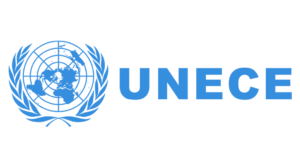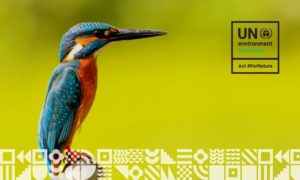Newsletter 28 Feb 2022
Environment: What’s Up in GENeva | 28 February – 6 March 2022

The Geneva Environment Network’s weekly newsletter includes the latest information on the global environmental agenda, main events, job vacancies, as well as other useful learning resources and updates. Stay tuned and follow us also on Twitter, Facebook, LinkedIn, Youtube, or visit our website regularly for additional updates.
In light of the recent developments of the sanitary situation, institutions in Geneva are adjusting their response and adapting their operations. Our update on COVID-19 and the environment lists relevant information, research, data, and press releases on the environmental origins and impacts of the pandemic.
Image of the week | Presentation of the World Environment Situation Room to Léman Bleu TV, in preparation of the March session of Go Solutions Durables.
All Eyes on the UN Environment Assembly
The resumed Fifth Session of the United Nations Environment Assembly (UNEA-5.2), hosted by the United Nations Environment Programme (UNEP), is convening this week in Nairobi and online. Following lengthy and late night negotiations on proposed resolutions and other important topics at last week’s resumed fifth session of the Open-Ended Committee of Permanent Representatives (OECPR) and during the informal meetings over the week-end, delegates are now expected to take bold decisions for our planet.
To stay updated on the world’s highest-level decision-making body on the environment, watch the sessions opened to the public, streamed live on youtube, read the Earth Negotiations Bulletin (ENB) providing daily coverage, or follow #UNEA5 on social networks.
Side-events addressing topics of interest for Geneva include:
- Reimagining Conservation: Integrating Human rights in the Development and Implementation of the Post-2020 Global Biodiversity Framework | 28 February 2022 | 11:15 – 12:45 CET | Center for Justice Governance and Environmental Action, CIEL, Conservation International, Costa Rica, Earthjustice, Forest Peoples Programme, GANHRI, Human Rights Watch, International Indian Treaty Council, IUCN CEESP, Natural Justice, OHCHR, Peru, Raoul Wallenberg Institute of Human Rights and Humanitarian Law, Slovenia, Swedbio, Sweden, UNDP, UNEP, Universal Rights Group, Women 4 biodiversity, WWF
- Protecting Earth Protectors – How to ensure that environmental defenders can play their role freely and safely | Green Tent event | 28 February 2022 | 13:30 – 14:45 GMT | EEB, Global Witness, Earthworks, Reaccion Climatica (Bolivia), PHE Consortium (Ethiopia), Norwegian Forum for Environment and Development, NGO Major Group, and Women Major Group
- From Recovery to Transformation: Greening Economies for People and Planet | 1 March 2022 | 11:15 – 12:45 CET | Online | PAGE, UNDP, UNEP, ILO, UNIDO, UNITAR
Further side-events relevant for international Geneva are listed in our page dedicated to UNEA-5.2, alongside other news and updates on the UNEA process. The full list of side-events and flagship side-events can be found in the UNEA-5.2 schedule. Additional events will be hosted at the Green Room / Tent.
UNEA-5.2 will be followed by a Special Session of the UN Environment Assembly, on 3 – 4 March, devoted to the commemoration of the 50th anniversary of the creation of UNEP in 1972. UNEP@50 is a time to reflect on the past and envision the future. UNEP@50 is expected to adopt a political declaration, as a follow-up to UN General Assembly resolution 72/277 (May 2018) and resolution 73/333 (August 2019).
UNEA-5.2: The Plastic Summit
During the OECPR meetings last week, UNEP Secretary-General Inger Andersen called on delegates “to be bold and to be determined so that we can land at a daring and meaningful resolution that kick-starts global action to put the brakes on plastic pollution, from source to sea”. Representatives from major groups and other stakeholders, including youth, expressed strong support for a legally-binding instrument (LBI) to end plastic pollution.
Negotiations at the OECPR discussed the draft resolution proposed by the co-facilitators, which was created as a merge of the Rwanda-Peru resolution and the Japan resolution, and the draft resolution proposed by India on single-use plastics. After several days of deliberations, and additional informal meetings during the week-end, delegates agreed on the final draft resolution “End Plastic Pollution: Towards an International Legally Biding Instrument” to be proposed for adoption this week. Daily coverage of the OECPR negotiations can be found in the Earth Negotiations Bulletin.
- In a statement published last week, UN human rights experts – the Special Rapporteur on environment and human rights and the Special Rapporteur on toxics and human rights – urged governments to “address the growing plastic tide and kick-start international negotiations on a new binding agreement” at UNEA-5.2. They emphasized the need to address the whole lifecycle of plastics, as each of its stages has “direct and adverse impacts on the enjoyment of human rights”.
- The International Pollutants Elimination Network (IPEN) warned of the toxic impacts plastics throughout their lifecycle and called for the inclusion of the health impact of plastics, controls for hazardous chemicals, microplastics, and transparency on chemical ingredients in the mandate for the INC.
Environment at the Human Rights Council
The 49th regular session of the Human Rights Council (HRC49) starts this week in Geneva, with a number of environmental topics on the agenda. Throughout the session, running until 1 April, regular updates on key issues at HRC49, side-events and further resources will be available on our dedicated webpage. Two reports by Special Rapporteurs (SR) will address environmental matters: the joint report by SR Environment and SR Toxics on “The right to a clean, healthy and sustainable environment: non-toxic environment“ and the report by the SR Food on “Seeds, right to life, and farmers’ rights”. This session will also see the nomination of the SR on climate change, following the adoption of a mandate on the topic at HRC48.
Of particular interest this week:
- The Swedish Ministry of Foreign Affairs and the Office of the High Commissioner are hosting a High-level event on Environmental Human Rights Defenders, on Tuesday 1 March at 14.00 CET. This event will invite ministers and other participants to reconfirm the international community’s commitments to defend and support environmental human rights defenders and muster support to increase states’ action to promote and protect their rights, in line with HRC resolution 40/11.
- The International Film Festival and Forum on Human Rights will kick off its 20th edition in parallel to the HRC session, on Friday 4 March. The programme includes a series of powerful and inspiring films showcasing stories where people’s rights and the environment are deeply intertwined.
Climate Change 2022: Impacts, Adaptation and Vulnerability
After an extensive review session over the last two weeks, governments approved and accepted over the week-end the Intergovernmental Panel on Climate Change (IPCC) Working Group II (WGII) contribution the Sixth Assesment Report (AR6) on climate change. WGII focuses on impacts, adaptation and vulnerability to climate change, from a world-wide to a regional view of ecosystems and biodiversity, and of humans and their diverse societies, cultures and settlements. The contribution will be presented at a press conference on Monday 28 February at 12.00 CET.
The IPCC reports are critical to ensure science-based decision-making. To better understand how this latest report will impact the climate governance scene, join next week’s COP26-COP27 Briefing on the IPCC Climate Change 2022 Report: Impacts, Adaptation & Vulnerability, to be held in a hybrid format on 7 March 2022 at 15.00 CET. Speakers will outline how to take forward the progress made from COP26 in Glasgow to COP27 in Sharm el-Sheikh, priorities for the global climate agenda in light of the new IPCC report, and practical steps the humanitarian, development, and other international communities can take to ensure we heed the warnings.
Preparing for the Conference of the Parties to the Minamata Convention on Mercury
An Executive Briefing on the Second Segment of the Fourth meeting of the Conference of the Parties to the Minamata Convention on Mercury (COP-4.2) will provide updates from the Minamata Convention Secretariat and the host country on the preparations for this important milestone, to be held in Indonesia, from 21 to 25 March 2022, and important preparatory meetings starting on 7 March. → Register on Webex and join us online, on Wednesday 2 March at 10:00 CET.
Celebrating Wildlife
World Wildlife Day, celebrated each year on 3 March, is the occasion to raise awareness of the multitude of benefits that wildlife provides to people, while reminding us of the urgent need to step up the fight against wildlife crime and human-induced reduction of species, which have wide-ranging economic, environmental and social impacts. This year’s edition is held under the theme “Recovering key species for ecosystem restoration”. As negotiations on the post-2020 Global Biodiversity Framework are expected to reach an outcome this year, drawing attention to the status of some of the most critically endangered species of wild fauna and flora and their role in ecosystems will send a powerful message for urgent commitment. For additional information on World Wildlife Day 2022, visit our regularly updated page.
Join the various online events proposed to celebrate wildlife:
- The official virtual celebration will be hosted by the CITES Secretariat on Thursday 3 March at 14.00 CET.
- Discover the beauty and importance of wildlife through films. As part of the Wednesdays for the Planet series, GEN is partnering with CITES for a film showcase and live discussion on Nature’s Fear Factor documentary. → Watch the documentary and register on Webex to join us for the live discussion with the film producer and leading experts, on Wednesday 2 March at 13.30 CET.
- CINE-ONU is hosting a screening of the documentary FIN, exploring the pressure faced by sharks populations, followed by a panel discussion, on Thursday 3 March at 18:00 CET.
Biodiversity conservation, wildlife and trade are important areas of work for the community in Geneva, especially as we are heading toward important negotiation meetings on these issues under the framework of the Convention on Biological Diversity (CBD) and the Convention on International Trade in Endangered Species of Wild Fauna and Flora (CITES). To help the Geneva stakeholders prepare for these meetings, two briefings last week focused on the CBD Resumed Sessions of the CBD SBSTTA-24, SBI-3 and WG2020-3, and the 74th meeting of the CITES Standing Committee. The recording, summary and supporting documents are available online.
New Data Platform on Water, Sanitation and Hygiene
Last week, the World Health Organization (WHO) launched the UN-Water Global Analysis and Assessment of Sanitation and Drinking-Water (GLAAS) data portal. This interactive platform provides policy- and decision-makers at all levels with reliable, easily accessible, comprehensive data on water, sanitation and hygiene (WASH) systems, including on governance, monitoring, human resources and finance. GLAAS monitors elements of WASH systems that are required to sustain and extend WASH services and systems to all, and especially to the most vulnerable population groups.
What (Else) Should I Read or Listen to Next?
- Number of wildfires to rise by 50% by 2100 and governments are not prepared, experts warn | UNEP | 23 February 2022
In this new report, UNEP and GRID-Arendal warn about the increasing risks of wildfires. Results show that climate change and land-use change are projected to make wildfires more frequent and intense, with a global increase of extreme fires of up to 14% by 2030, 30% by 2050 and 50% by the end of the century. Governments are called to radically shift their investments in wildfires to focus on prevention and preparedness.
- Catching sight of the invisible chemicals crisis | Geneva Solutions | 17 February 2022
While it has for long received less public and media attention than the climate and biodiversity crises, the pollution crisis is killing millions and threatening the world’s ecosystems. Pesticides, heavy metals, plastic additives, radioactive waste, and other toxic substances are flooding the water, land, and air. The Stockholm Convention and the Aarhus protocol on POPs are providing some solutions to address this crisis, but what more can be done?
- Do we need a Paris Agreement for plastics? | World Economic Forum | 11 February 2022
In this episode of Radio Davos, proponents of the creation of a global treaty on plastics explain why plastic pollution is a global problem that needs a global solution. And just like climate change has its ‘Paris Agreement’ that has set a target of net-zero greenhouse gas emissions, they advocate that plastic should have its own treaty which sets the world on course for zero plastic pollution.
- Guidance report on climate change, employment and just transition | IOE | 10 February 2022
The International Organisation of Employers released a new guidance for business on the latest climate change policy developments. As climate change is indeed one of the most significant areas of concern for employers’ organisations, the paper provides insight into the most recent developments in international discussions on climate that impact employers.
- Stratégie climat de la Ville de Genève | Ville de Genève | 24 février 2022
La Ville de Genève adopte une nouvelle stratégie climat, intégrant ainsi les objectifs climatiques à l’ensemble des politiques publiques. Cette ligne directrice vise la réduction des émissions de carbone directes et indirectes sur le territoire, et la transition écologique, sociale et économique. - Ukraine invasion: rapid overview of environmental issues | Conflict and Environment Observatory | 25 February 2022
In light of recent geopolitical news, CEOBS provides an overview of some of the emerging environmental issues and perspectives arising from the Russian invasion of Ukraine. In common with many conflicts, pollution incidents that place people and ecosystems at risk of acute and long-term harm can already be seen.
Events
See all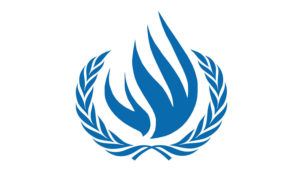
Body Meeting
49th Regular Session of the Human Rights Council | HRC49
28 Feb – 01 Apr 2022
Palais des Nations | Room XIX & Online
HRC

Conference
Release of the Working Group II Summary for Policymakers – Press conference
28 Feb 2022 10:00
Online
IPCC
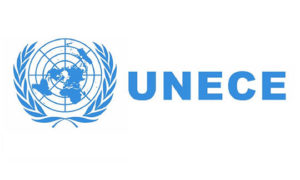
Body Meeting
12th meeting of the Protocol on PRTRs Compliance Committee
01 Mar – 02 Feb 2022
Online
Aarhus Convention

Virtual
Reactive Mercury in Air Webinar
01 Mar 2022 16:00 – 17:30
Online | Webex
Minamata Convention on Mercury

Conference
Innovate 4 Water | Geneva 2022
02 – 03 Mar 2022
FER | Rue de Saint-Jean 98
Waterpreneurs, InTent

Executive Briefing on the Second Segment of the Fourth meeting of the Conference of the Parties to the Minamata Convention on Mercury (COP-4.2)
02 Mar 2022 10:00 – 11:00
Online | Webex
Minamata Convention on Mercury, GEN
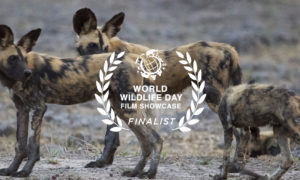
Cinema
World Wildlife Day Film Showcase: Nature’s Fear Factor | Wednesdays for the Planet
02 Mar 2022 13:30 – 14:30
Online | Webex
GEN, CITES

Body Meeting
5th Meeting of the UNECE/FAO Team of Specialists on Boreal Forests
02 Mar 2022 15:00 – 17:00
Online | Kudo
UNECE


Cinema
FIN Film Screening & Debate | Ciné-ONU for World Wildilife Day
03 Mar 2022 18:00
Online | Zoom
UNOG

Cinema
FIFDH Film Screening | Tout commence
05 – 09 Mar 2022
Espace Pitoëff (Théâtre) - Rue de Carouge 52
FIFDH

Cinema
FIFDH Film Screening | Luzzu
06 – 10 Mar 2022
Les Cinémas du Grütli, Rue du Général-Dufour 16
FIFDH
Jobs
See all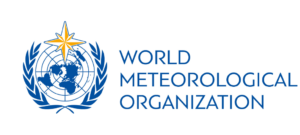
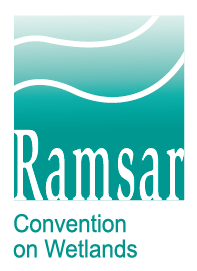

Professional
Directrice-teur à 100% | OCEV -Service de l’air, du bruit et des rayonnements non ionisants (SABRA)
28 Feb 2022
Republic and State of Geneva
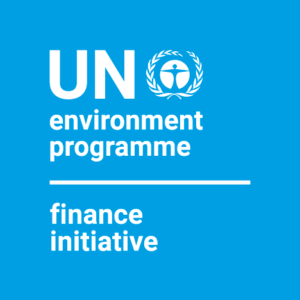

Consultant
Principles for Responsible Banking Implementation Support Coordinator
28 Feb 2022
UNEP FI

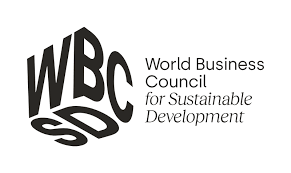


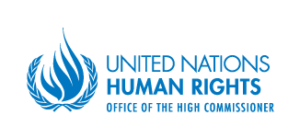
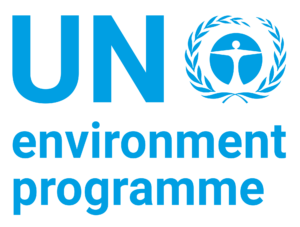




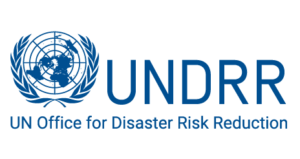
Consultant
Support the development of the UN system contribution to the Midterm Review of the Sendai Framework Consultant
02 Mar 2022
UNDRR



Professional
Technical Specialist –End of life vehicle management and recycling in SIDS
02 Mar 2022
GGKP
